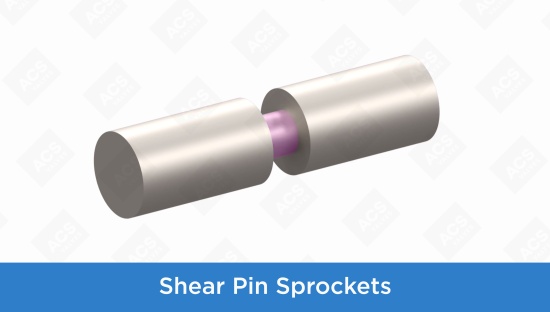
What’s the meaning of life? Who’s being drafted to your favorite sports team? What should you expect from your rotary airlock valve supplier? They’re all important questions, but we’re most qualified to answer the last one.
If you’re shopping for a new valve, ask your vendor these questions before committing to an order. Their answers should give you confidence in the expertise of their team, the reliability of their valves, and their ability to provide additional value and support throughout the process.
1) Where and how are your airlocks made?
Cheaply made valves are not worth the risk of contamination, safety hazards, and downtime. Rotary airlocks should be cast with high-grade steel to ensure they meet quality standards, and CNC-machined parts are a must to ensure conveying accuracy and a longer lifespan. Your valve supplier should be able to explain how and where the valves are designed and manufactured.
2) How well do you know my industry?
If your supplier recommends a valve, they should be able to explain how it will fit into your plant’s setup, convey your materials more efficiently, and reduce downtime in your application. That requires in-depth knowledge of pneumatic conveying and bulk material characteristics. Always ask if they have experience configuring valves for your industry and material.
You can also ask about application-specific equipment, features, and design elements that provide things like:
- Reduced energy consumption
- Fast and easy cleaning
- Effective material release with no dead zones
- Metering consistency
- Coatings for reduced wear and longer lifecycles
- Shaft seals that don’t have to be adjusted
- Bearing design that reduces the risk of contamination
- Drive packages that require less maintenance
3) Do your valves meet regulatory compliance standards?
Safety compliance features should come as a standard, not as add-ons that require you to pay extra. Whether it’s OSHA-compliant features to prevent workplace injuries or NFPA-compliant configurations to minimize the risk of fires and explosions in your plant, rotary airlocks should be able to help you meet regulatory standards by design.
4) How does your ordering process work?
Long before you place an order with your valve supplier, they should be able to describe the process from start to finish. What kind of information do they typically include in a quote? Will they send a detailed proposal and drawings to confirm the specifications? A sales rep can also tell you up front whether you should expect any additional fees or delays.
5) How often do your valves and parts need to be replaced?
A key aspect of maximizing uptime is ensuring your equipment runs reliably. Do parts such as seals, bearings, and rotors last longer than the competition, and are they easy to replace when needed? Are the rotary airlocks themselves designed for longevity in your application? Your supplier should be able to recommend valve coatings, options, and accessories that extend lifespan and reduce maintenance cycles.
6) How fast is your customer service?
In this industry, wasted time is synonymous with throwing bulk material down the drain. There are two sides to the customer service coin: the responses you get during the initial quoting process, and the technical support you get after the valve is delivered.
It’s important to get quick and reliable answers to your questions, regular shipping updates, and a fast turnaround on drawings and quotes. Once your new valve is safely set up in your plant, it’s equally crucial to know that someone will be there to provide prompt technical support if you ever need it.
7) What happens if the valve breaks down or fails?
Does the vendor stand behind their products? Does their technical support team have enough conveying knowledge to help you diagnose, troubleshoot, and resolve issues when they arise? Every conveying setup is different, so tech support should be able to look at specifications or pictures of your equipment to understand the issue and make relevant suggestions.
8) So, how much?
Yes, your supplier should offer a competitive price for the value they bring. Cheaper doesn’t always mean better, but the supplier should be able to explain how their recommendations will improve your ROI in the long run.
Ready to quiz us?
The ACS Valves team is always happy to field any questions you might have. If you’re looking to replace an old valve from a different manufacturer, we can also configure a new valve to your existing specifications. Just contact us to get started.


